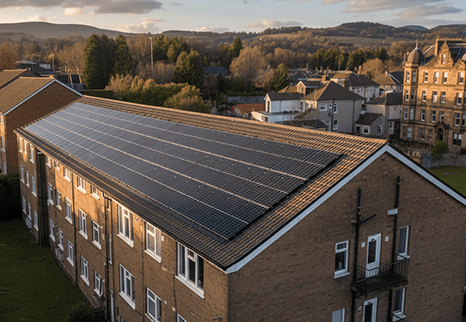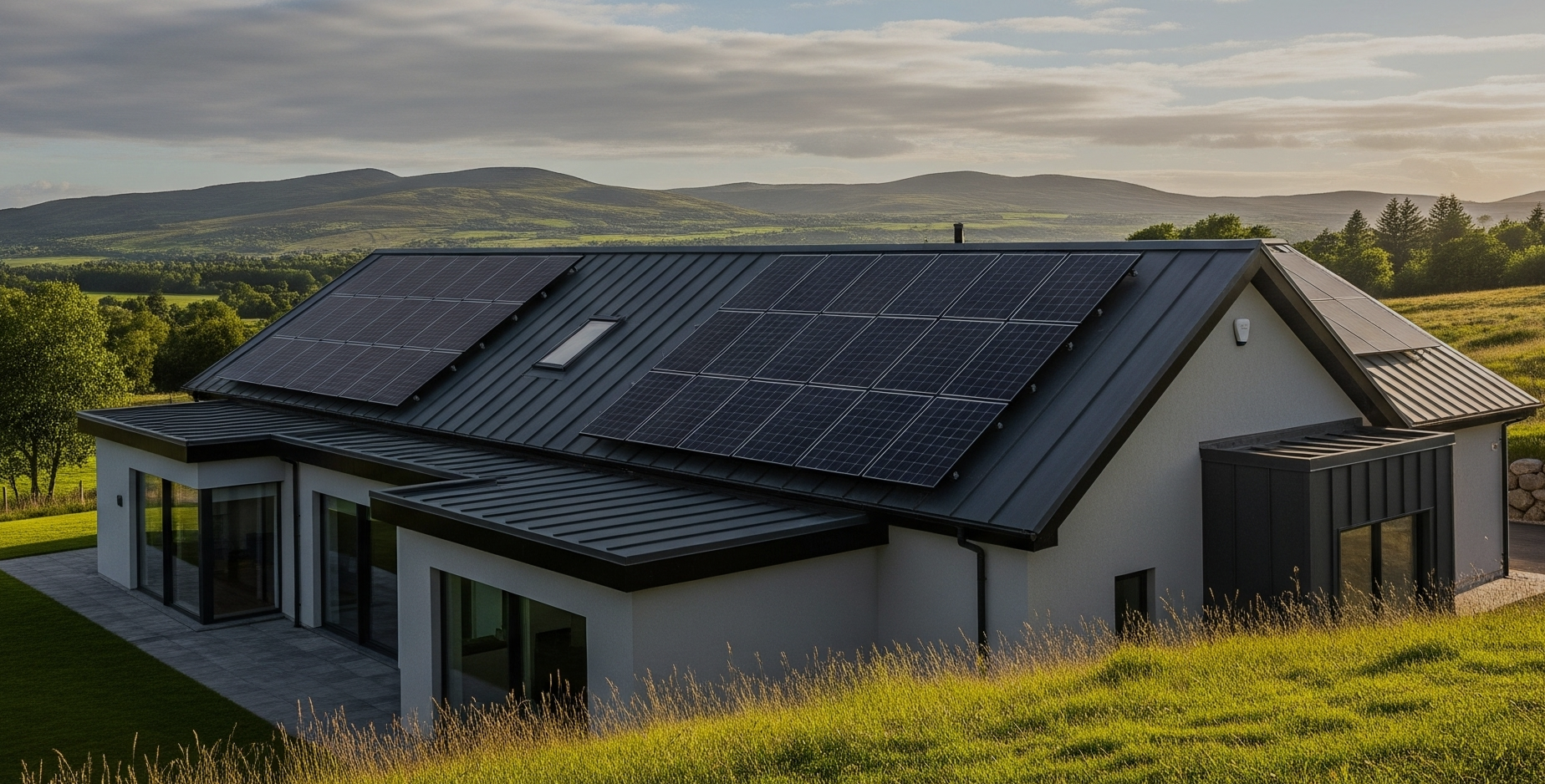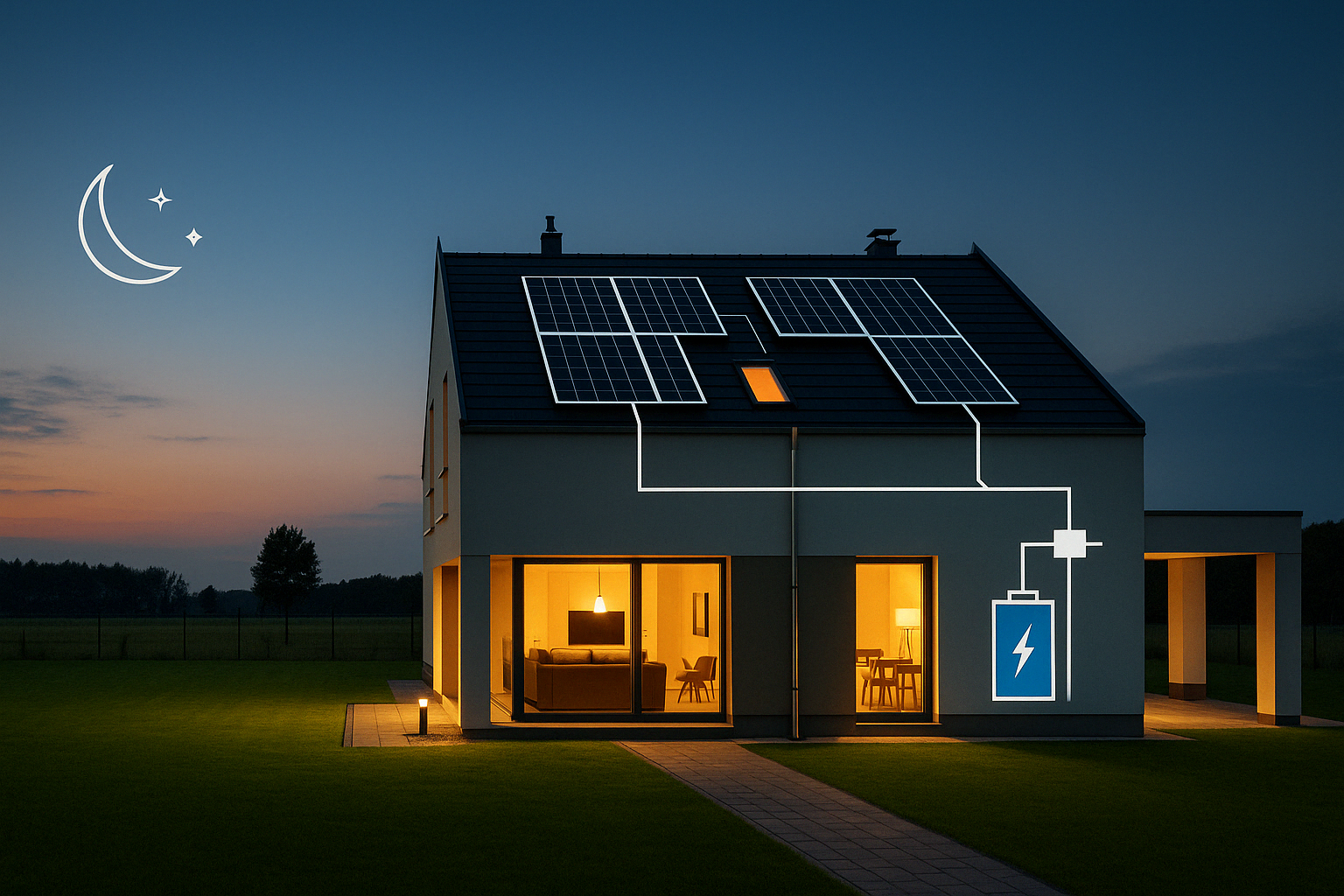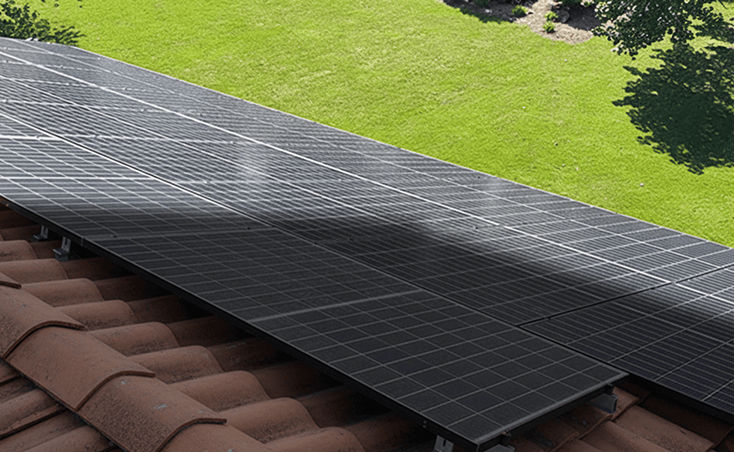What's Possible with Solar Panels for Flats and Tenements in Scotland
Complete guide to installing solar panels on flats and tenements in Scotland. Learn about ownership, consent requirements, SolShare systems, costs, grants, and how to get your neighbours on board.

What's Possible with Solar Panels for Flats and Tenements in Scotland
If you have been wondering whether or not you can put solar panels on a tenement….
The short answer is… Yes.
Longer answer is a bit more complicated, but it can be done and today it is honestly the easiest it's ever been. Whilst it's not as straightforward as a detached house, it can be done but involves more paperwork, more people to convince, more "what ifs" to work through.
The technology isn't the problem anymore, its more trying to get everyone to agree.
Solar for Tenements: Quick Summary
Who Owns the Roof?
Mostly in tenements they are common properties. Owned by everyone in the building under the Tenements (Scotland) Act 2004. But not always. For example you could see title deeds where the top floor owns everything and others where it's split between specific flats.
What to do first? Check your title deeds. Installers shouldn't carry out any work until they know who owns the surface.
First Step: Check Your Title Deeds
Before any solar installation on a tenement, you must verify roof ownership through your title deeds. This determines whether you need unanimous consent or can proceed with individual installation. Your solicitor can help clarify the specific ownership structure for your building.
Contact Us for a Feasibility SurveyThe Consent Challenge
Here is where projects can stall. For maintenance work to be carried out there needs to be a majority vote, however as solar panels are an improvement, these need unanimous consent from every owner.
What works: Frame this as part of necessary roof work if you're planning that anyway. Some factors have got solar approved with majority votes by linking it to scheduled repairs, this would be worth discussing with your solicitor.
Consent Requirements for Tenement Solar
Mandatory for:
- Solar panels are considered an 'improvement' under Scottish tenement law.
- Unanimous consent required from all owners (not just majority vote).
- Maintenance work only needs majority vote - consider framing solar as part of roof repairs.
Recommended for:
Discuss linking solar to scheduled roof repairs with your solicitor - this may allow majority vote approval.
Note: The Tenements (Scotland) Act 2004 governs these requirements. Always consult a solicitor for your specific situation.
Three Installation Options
1. Individual Systems (Cottage Flats)
If your roof's actually divided (four-in-a-block types), this is straightforward. Panels would be installed on your section and then wired to your meter, done. We handle the DNO application and building warrant. You'll still need your neighbours written consent for scaffolding.
2. Communal Supply Systems
We would wire the array to power your buildings shared electricity eg stair lights, lifts, entry systems. The excess would then go to the grid through Smart Export Guarantee usually as 4-20p per kWh.
The reality is If you only have stair lights that cost £50 per year it's hard to justify £10k. But with things like a lift, Security systems, EV chargers, then it makes more sense. For example a building with a lift. Communal electricity at £400 per year. Solar covered by 70% plus £200-300 in exports could be an eight year payback with grants.
3. SolShare Systems
SolShare technology is pretty smart, it splits power from one array to multiple individuals flat in real time. It does this for example with one array and one SolarShare unit with individual cables to the chosen flats. System then monitor who is using electric and they direct solar to whoever needs it.
What this means basically is that you keep your own supplier, you don't share the billing and your meter just records less grid usage.
Participating flats can see 30-40% less grid electricity whilst flats not participating won't be effected.
The additional costs are around £2-£4 thousand but it solves the problem of spitting the bill.
SolShare: The Smart Solution for Tenements
SolShare technology allows multiple flats to benefit from a single solar array without sharing billing. Each participating flat keeps their own energy supplier and simply uses less grid electricity. Expect 30-40% reduction in grid usage for participating flats, with additional costs of £2-4k on top of the base system.
Learn More About SolShareWe Can Handle The Technical Part
Every installation needs DNO approval through either SP Energy Networks or SSEN in Scotland. G99 applications are for usage over 3.68kW which are usual tenements usage. We handle this and it usually takes between 10 to 45 days. For shared systems, you need smart meters, we can arrange the upgrades.
DNO Approval Requirements
Mandatory for:
- All tenement solar installations require DNO (Distribution Network Operator) approval.
- Systems over 3.68kW need G99 application (typical for tenements).
- G99 approval typically takes 10-45 days.
- Shared systems require smart meters - we can arrange upgrades.
Recommended for:
Work with an installer who handles DNO applications - this is complex paperwork best left to professionals.
Note: DNO approval is mandatory and cannot be skipped. Always ensure your installer handles this process.
EV Charging
If you are wondering whether or not you can charge you EVs with solar then the good news is that, yes you can. If you have parking spaces absolutely.
We install roof arrays and communal chargers then residents can book slots via an app. Free charging or small fee to building maintenance fund.
The costs for a 7kW charger is around £900 to £1,500. There are grants of up to £350 available in Scotland.
Most tenements support two 7kW charger max, to add more usually requires expensive upgrades. We can assess the capacity in a survey.
Costs & Savings
In order for a 10kW system to be installed in a tenement the average costs is usually around £8-12k. However if you were to add something like SolShare you'd then be looking at an additional £2-£4k.
In terms of savings there is 0% VAT until March of 2027, this usually saves around £2k. Home Energy Scotland are offering up to a £7.5k interest free loan. SEG payments are around 4-20p/kWh for exports.
You can expect payback to be around 12-15 years without any grants, if you add in the grants then 7-10 years is more plausible. Then you'd be looking at 10-15 more years of free electricity.
Typical Costs
Prices are estimates. Payback is 7-10 years with grants, 12-15 years without. Then 10-15 more years of free electricity.
What Changed in 2024
Scotland has removed the 50kW permitted development cap in May of 2024. Flat roofs are now permitted under 1m protrusion. Conversion areas are easier. Most tenements proceed without planned permission. You do still need a building warrant and DNO approval.
2024 Planning Changes Make It Easier
Scotland removed the 50kW permitted development cap in May 2024. Flat roofs are now permitted under 1m protrusion, and conversion areas are easier. Most tenements can proceed without planning permission, though you still need a building warrant and DNO approval.
Check Planning RequirementsGet The Ball Rolling…
Getting neighbours to agree isn't always easy. Some projects go through in two months whilst others take 18 months of meetings.
Start with interested people, fund a proper study and present real numbers. Let people opt in.
Ask you installer for a feasibility survey that checks structural capacity, shading analysis electrical capacity and access. Then get a clear proposal, look for pricing with and without grants, what options you have for systems and a realistic payback.
Ask if they can help give you support with the owners, help with your questions and provide facts so you can make informed decisions.
Finally, when it comes to the technical stuff, your installers should be on the ball here with things like DNO applications, building warrants, installation, certification, aftercare etc.
Frequently Asked Questions About Solar Panels for Tenements
Common questions about installing solar panels on flats and tenements in Scotland
Mackie Electrical - MCS and NICEIC-approved solar panel installers serving Central Scotland including Stirling, Perth, Falkirk, and Dunbartonshire. Specialists in tenement and communal solar installations.
Related Articles
Continue reading with these similar topics

The Ultimate Guide to Solar Panel Installation in Scotland 2025
Your complete 2025 guide to solar panels in Scotland. Learn about installation costs, grants like Home Energy Scotland, ROI, and the step-by-step process.

The Complete Guide to Home Battery Storage & Funding in Scotland
Unlock energy savings in Scotland! Your guide to home battery storage costs, benefits, ROI, and crucial 2025 funding updates (Home Energy Scotland & ECO4). Cut bills & use more solar.

Shading on your roof & how it affects your solar panels
Understand how shading affects solar panels in Scotland, from chimneys to trees. Learn about micro-inverters, optimisers, and shade factors to maximize your energy production.